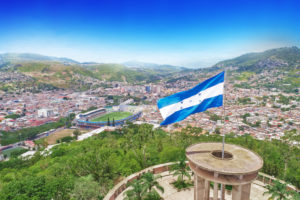
Technical Assistance for Implementation of Civil Society Dialogue and Civil Society Support Programmes (TR2015/DG/01/A5-01/001)
The overall aim of the project is to increase bilateral exchanges and cooperation between CSOs in Turkey and the EU at local, regional and national levels, to promote awareness raising initiatives on importance and benefits of membership of Turkey to the EU within Turkey and EU and on

Technical Assistance for Jean Monnet Scholarship Programme
Turkey’s negotiations in pursuit of full membership in the European Union (EU) place significant responsibilities on all sections of Turkish society. This fact means that Turkey needs individuals from all parts of society who can closely follow and contribute to EU-related issues. In this context, the specific purpose

Technical Assistance for Result Oriented Monitoring in Turkey-Phase III
Within the scope of this project, we are aiming to ensure efficient and effective of IPA II assistance with a view to better achievement of the objectives set out in the Indicative Strategy Paper of Turkey (2014-2020) and assist NIPAC to fulfil his extended monitoring responsibility.

Capacity Development of Employees and Employers via Information and Communication Technologies (ICT)
In Turkey, in common with all other countries, both employers and employees need to be aware of, and be able to use, the latest ICT tools in the workplace to improve the efficiency and competitiveness of their businesses and take best advantage of personal development opportunities. This project,

Technical Assistance for the Programme Entitled ‘Institutional Strengthening to Promote Decent Work in Honduras (EURO+LABOR)
It’s considered essential to systematically promote decent work for the labour market of a country. In this regard, the mission of the Programme EURO + LABOR was to ensure “a country with decent employment opportunities for the population of Honduras” based on the Honduras Government’s priorities and National

Technical Assistance for Samsun Logistics Centre
The project was conceived, Turkey’s logistics network ranked 30th worldwide but offered much potential for improvement. With its strategic Black Sea location, seaports, airport and access to national rail and road networks, the Turkish city of Samsun was viewed as being in an excellent position to create a

